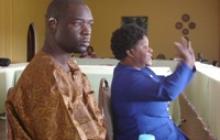Inclusive Education in Pakistan: Experiences and Lessons Learned from the ENGAGE Project
The United States Agency for International Development (USAID) funded AIR to implement the Engaging with Disabled People’s Organizations (DPOs) in Development Cooperation (ENGAGE) Project. The purpose of the ENGAGE Project was to increase the participation of DPOs and people with disabilities in the planning and implementation of development efforts. This is needed because people with disabilities are more likely to be caught in a vicious cycle of poverty and denial of opportunities for economic, social, and human development. Including people with disabilities and their needs in international development is needed to break this cycle.
The aim of the ENGAGE Project was to create examples of inclusive development in the sectors of education, governance, and HIV in the countries of Mexico, Pakistan, and Zambia. This brief describes the work of the ENGAGE Project in Pakistan to address the issue of increasing access and participation to quality learning environments for children with disabilities. ENGAGE used two approaches to implement the project in Pakistan:
-
Integrating curriculum about disability and inclusive education into a teacher training project
-
Developing a pilot-inclusive education project
ENGAGE selected an existing USAID teacher training project—Revitalizing, Innovating, and Strengthening Education (RISE)—to demonstrate the benefits of integrating disability in mainstream development investments. ENGAGE provided a technical expert who developed inclusive education curriculum and materials, which RISE used to train 7,000 primary teachers. As a result, teachers are becoming aware of how to create inclusive classrooms and more sensitive to the needs of all students.
After the first cohort of teachers in the District of Bagh completed the 2-year training provided by RISE, ENGAGE initiated a pilot-inclusive education project. The aim of the project was to provide additional training and support so that 25 teachers would be able to educate children with disabilities in their classrooms. The trainee teachers selected for the pilot project had 48 children with disabilities in their classroom. These children had a range of disabilities, including vision, hearing, physical, intellectual, and emotional/behavioral. Within the trainee teachers’ classrooms, 1,373 children were without disabilities. The trainee teachers were from 19 schools.
The pilot project used three approaches to provide training and support: workshops; onsite support with mentor teachers; and cluster meetings, whereby the group of teachers met with inclusive education experts (i.e., university professors) to answer questions and discuss solutions or strategies to resolve difficulties. At the conclusion of the pilot project, changes were witnessed in teachers’ attitudes, knowledge, and skills. Overall, trainee teachers became more confident about their abilities to educate children with disabilities. Changes in the classroom environment and arrangement were noticed, because teachers were more conscious of the needs of the children with disabilities and how such factors as seating or physical arrangements could better facilitate learning. Teachers also more frequently used interactive and student-centered teaching strategies (i.e., peer tutoring, project, and demonstration).
The ENGAGE pilot project also worked with parents of children with disabilities and members of the School Management Committee (SMC). Information sharing about disabilities was particularly needed in the District of Bagh because people had nowhere to go for resources, information, support, and services. As a result, the project became a conduit for information for parents and community members to learn about different types of disabilities and available interventions.
Based on the experiences of the ENGAGE Project and others in Pakistan (UNICEF, 2003), there are encouraging signs that inclusive education is possible in Pakistan, if the appropriate resources and supports are provided. This project demonstrated that when training was provided to Pakistani primary teachers, they were able to make changes in their pedagogy and become more accepting of differences in their students, which are necessary initial steps to making classrooms and schools more inclusive.
The ENGAGE Project has also shown the feasibility of advancing the interests and needs of people with disabilities into mainstream international development efforts. The project was able to train a large number of teachers and bring awareness of the needs of children with disabilities to regional education officials. There continues to be a need for donors and implementers to support the efforts in developing countries to provide educational opportunities to all children, particularly those with disabilities. International development donors and implementers must continue to work with governments in developing countries to establish strategies that promote inclusive education.
